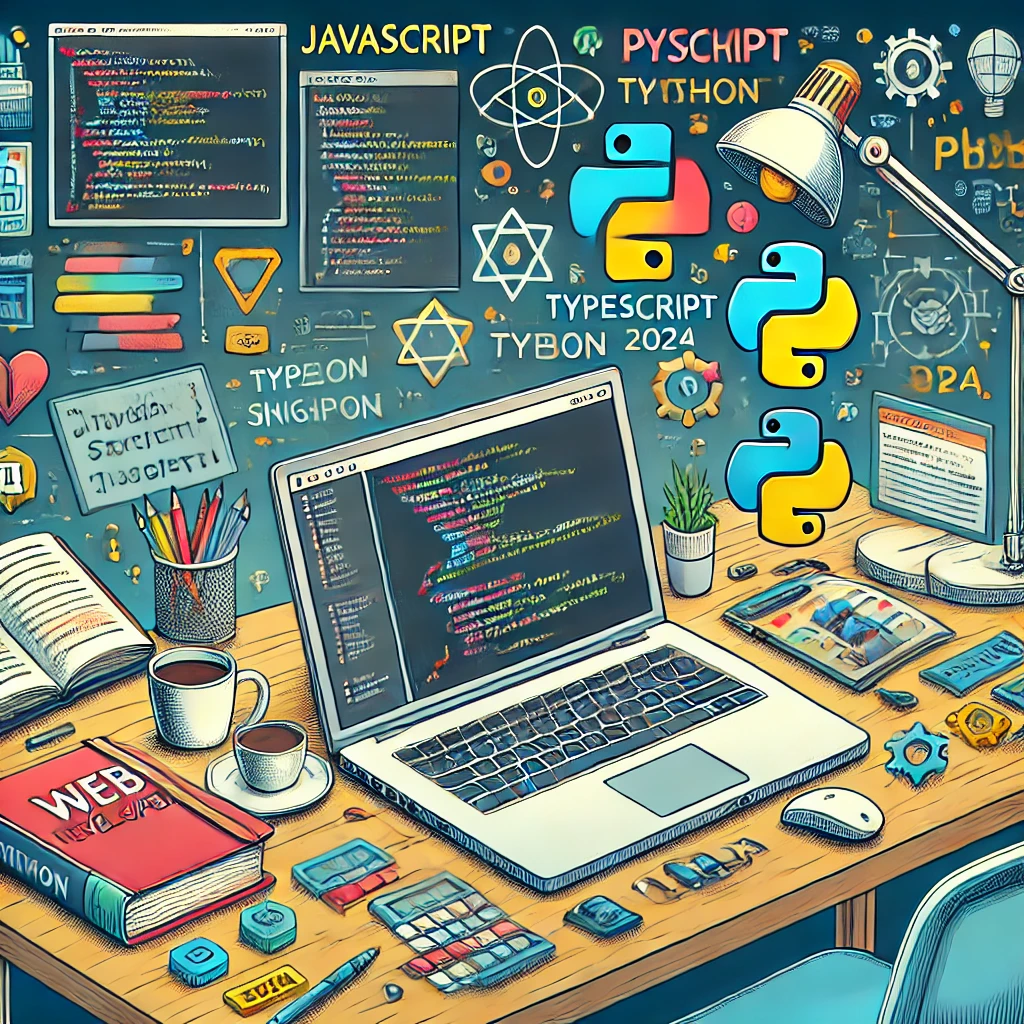Best Programming Languages for Web Development in 2024

Discover the best programming languages for web development in 2024. Learn about popular options like JavaScript, Python, and emerging languages to make informed choices for your next project.
1. JavaScript – The Backbone of Modern Web Development
JavaScript continues to dominate web development, powering nearly every dynamic feature on the web. In 2024, it's expected to remain a foundational language due to its versatility and strong community support.
- Pros: Widely used with extensive libraries (e.g., React, Angular); High demand in the job market; Suitable for both front-end and back-end (Node.js).
- Cons: Asynchronous code can be challenging to learn; Performance can lag behind lower-level languages.
Best For: Full-stack development, front-end frameworks, and interactive websites.
2. Python – The Language of Simplicity and Versatility
Python has gained popularity for its simplicity and readability, making it an excellent choice for beginners. Its growing range of web frameworks like Django and Flask make it a powerful language for building secure and scalable web applications.
- Pros: Easy to learn, with a clean syntax; Strong frameworks for web development (e.g., Django, Flask); Large community and extensive libraries.
- Cons: Slower performance compared to languages like JavaScript; Limited options for front-end development.
Best For: Data-driven applications, machine learning, backend web development.
3. TypeScript – JavaScript’s Modern Companion
TypeScript, a statically typed superset of JavaScript, is becoming a staple for web developers. In 2024, its popularity is expected to grow as it provides error-checking features that enhance productivity and reduce bugs.
- Pros: Enhances JavaScript with type safety; Better code maintainability for large projects; Supported by popular frameworks (Angular, React).
- Cons: Steeper learning curve than JavaScript; Requires compilation to JavaScript.
Best For: Large-scale applications, projects needing structured code.
4. Ruby – The Power Behind Rails
Ruby on Rails remains a favored framework for startups and small businesses due to its rapid development capabilities. Ruby itself is known for simplicity, making it a suitable choice for new developers focusing on web applications.
- Pros: High productivity with Ruby on Rails; Developer-friendly with a focus on convention over configuration; Strong community support.
- Cons: Lower performance for large-scale applications; Limited use outside of web development.
Best For: MVPs, web applications for small to medium-sized businesses.
5. PHP – Still Relevant and Effective for Web Development
PHP may seem like an older language, but it powers a significant portion of the web, including WordPress sites. In 2024, it remains relevant, particularly for small-scale projects and content-driven websites.
- Pros: Easy integration with HTML and databases; Great for CMS and e-commerce platforms; Large number of frameworks (Laravel, Symfony).
- Cons: Less structured than modern languages; Not ideal for complex, large-scale applications.
Best For: Content management systems, small business websites.
Conclusion
Choosing the best programming language for web development in 2024 depends on your specific goals, project requirements, and existing skills. JavaScript and Python continue to be dominant, while languages like TypeScript and Ruby offer unique benefits for specific project types. By staying informed on these languages, developers can enhance their skills and deliver powerful web applications that meet the evolving demands of users.
Get In Touch
We’d love to hear from you! Whether you have questions, feedback, or simply want to connect, our team is here to help. Feel free to reach out, and we’ll get back to you as soon as possible.

